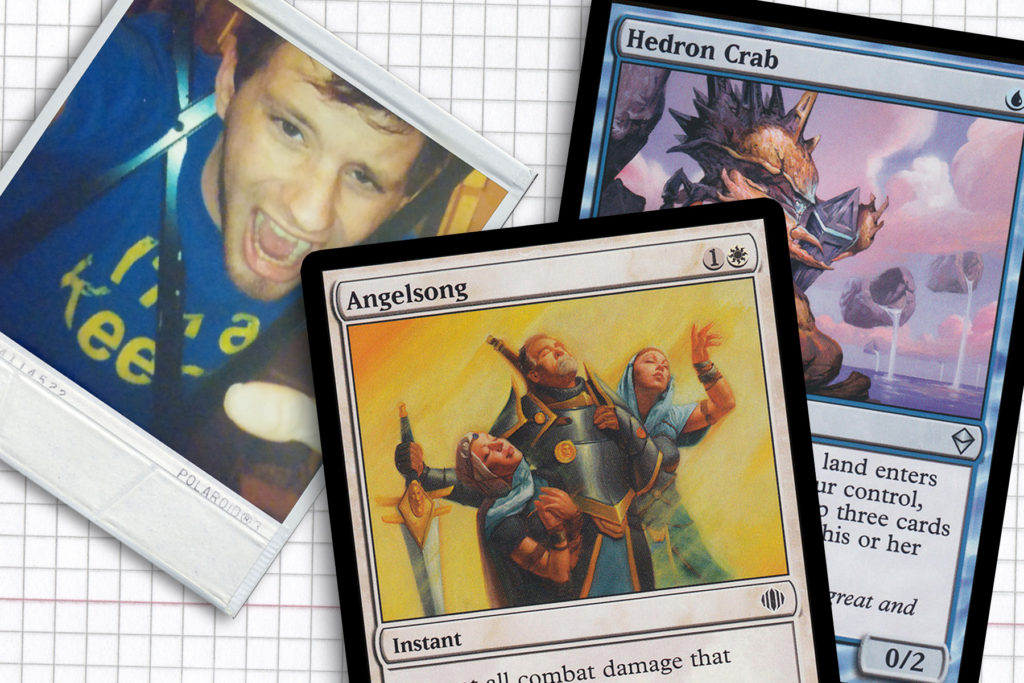I don’t know if this universal or a mix of my own tedious memory and nostalgia, but I like to think that everyone has an imprinted memory from the first time they played Magic: The Gathering. My first true moment with Magic was when my cousin, Christine, introduced the game to me through the 7th Edition 2-Player Starter Set, a long gone product with two decks that were pre-sequenced to walk you through the game as a way to teach you. Even with my experience on rails, something was electric about that day. The following day I biked to my then-local game store and bought the Armada preconstructed deck and several packs of Odyssey, I was hooked.
From that moment on, I would be on a very long journey from super casual player to Standard grinder to the Commander scrub before you today; happy with where I am, but also left feeling that some of the innocence of that moment has been lost. I have reflected back, I realize that in some ways the more time I spend with Magic the more the magic has worn off and the game transforms into something else. Today, I would like to spotlight how I learned to love Magic, sometimes in bittersweet ways.
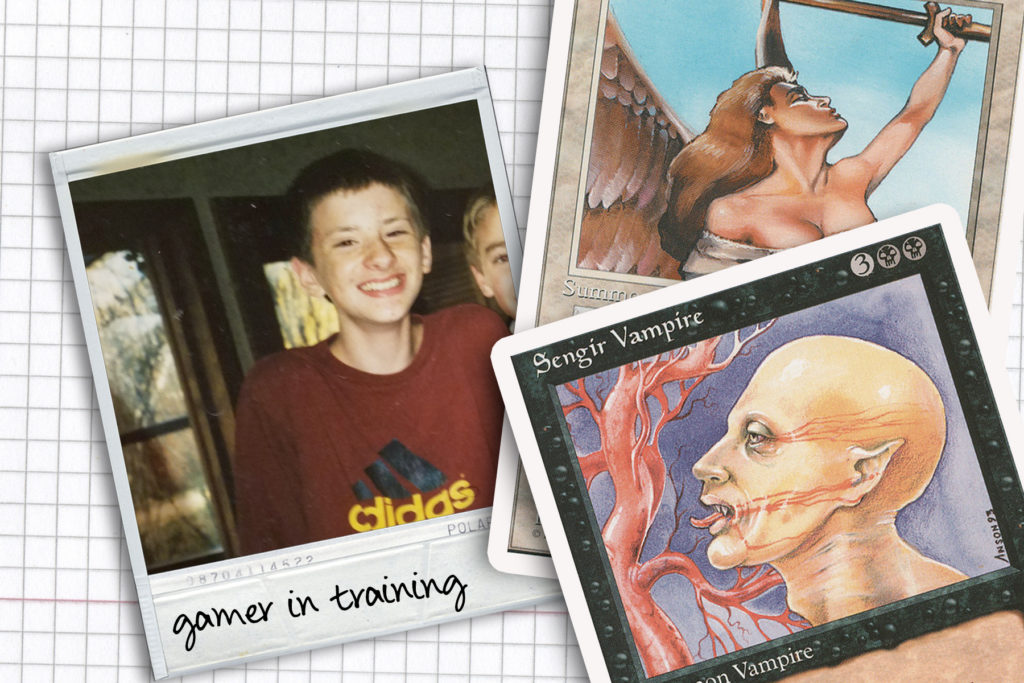
Defacing the Iconic
Not long after buying that Armada deck, I was playing Magic with Christine ad nauseum at every family event that summer, completely addicted. At one event another cousin saw what we were doing and recognized the cards as something he had collected purely for the art years before, handing over his box of a hundred or so cards from the Unlimited/Fourth Edition era to us that he saw no need to keep. This was the first time I saw Serra Angel, holding it next to the Serra’s Embrace that came with the Armada deck and instantly understanding that there was a connection. Playing with the card felt powerful, but I certainly didn’t understand why at that point. Christine and I divvied up the cards between us and parted ways.
Not long after I started high school and as an insignificant freshman, I was looking for somewhere to belong, quickly discovering a “Magic Club” meeting after school in the English department. As a freshman, it was great and gave me a sense of belonging. A few sessions in I was playing with the Serra Angel and a Sengir Vampire I had begged my mom to help me find in a Black/White Vampires and Angels deck. I was so proud of this deck. A few turns into a game I confidently tapped my available five mana and cast Sengir Vampire. I felt invincible.
“That’s a pretty bad card,” the senior sitting to my left said.
I was deflated, these cards were resonate fantasy to me, they felt cool and powerful. But he was right, they must be bad. Even though it had given me a sense of belonging those first few months of high school, I never came back to Magic Club and didn’t bring my cards with me to school for at least two years.
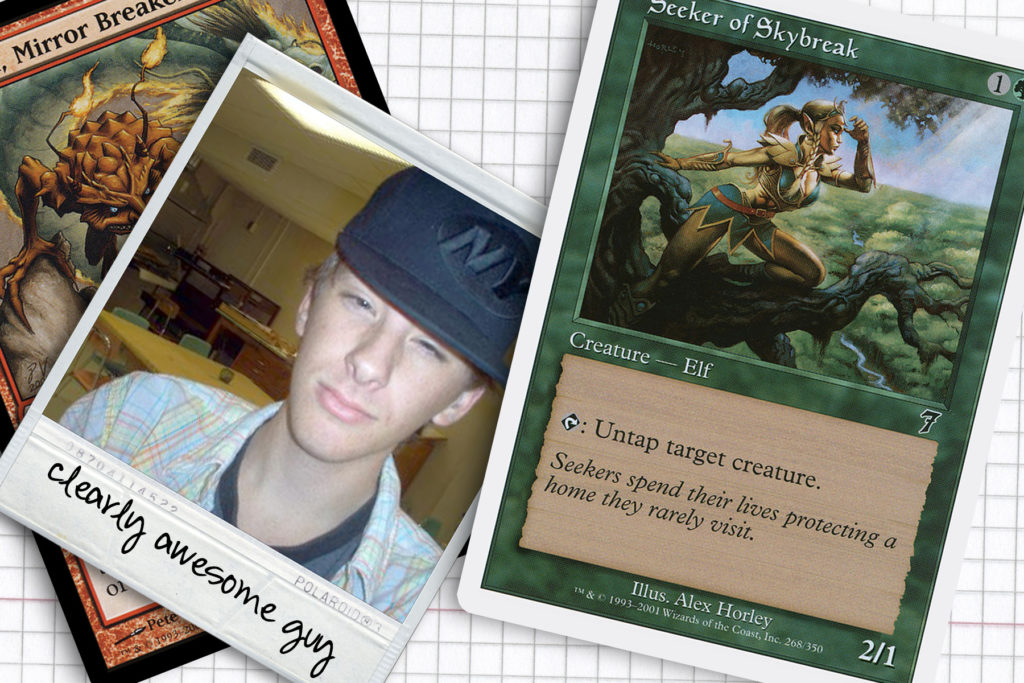
Applied Magic Theory
Over the next few years, I collected cards and read any articles I could find when I had access to a computer, but I only played the game with myself. I had eight decks in a rotation and after school I would play them against each other in a single elimination tournament to determine which was the best, as if a challenger would come crashing through a wall at any moment, challenging me to a game. This all changed as Ravnica: City of Guilds came out, when I discovered that for much of my high school tenure, an entire group of a dozen or so Magic players had been occupying my high school.
Finding people who loved Magic after years of solitude was like discovering that food had flavor. While some in the group attended tournaments on a regular basis, most played entirely casual 60-card brews, all meant for multiplayer games. The plan every morning became getting to school as early as possible to join the eight to 10 person game that would grind on until the bell rang, signaling us to collect our cards and run to class. Hallway time became brainstorming sessions about Spellweaver Helix and Dragonstorm or why Ink-Eyes, Servant of Oni was good or why a 75-card deck was too much.
While I look back at this time fondly, the introduction of a metagame meant that I had lost a small bit of innocence, as I could no longer just build a pile of cards and have a good time. The moment I realized this came one morning when I awoke almost an hour early, buzzing with this idea for a deck that had come to in the night; I would use Kiki-Jiki, Mirror Breaker to copy Seeker of Skybreak and end the combo by getting a few copies of Heedless One. The deck was Temur colored, splashing Blue for Riptide Shapeshifter as a backup to get whatever combo piece I might be missing. The combo took more than half a dozen games to finally assemble and while I got a standing ovation when it finally happened, the deck wasn’t all that good outside of the combo and the preceding games left me downtrodden to attempt another crazy deck like that again.
Feeling of Superiority
Fast forward to Worldwake Standard; after discovering that much of my casual deck happened to be Standard-legal, I climbed into the car with my friends Louis, Jayme and Jesse to attend my first Friday Night Magic. The deck of choice I was piloting was in the mold of a “Jacerator” deck, using Hedron Crab and Archive Trap to mill opponents out, protecting itself with Angelsong and Safe Passage in a very demoralizing fashion. If my memory serves, I went 2-2 that night, losing to any Jace, the Mind Sculptor decks I ran into. But the real story came in round three against a Jund opponent.
I can remember having a pair of Angelsong in my hand and a Howling Mine or two in play when he dropped his first Bloodbraid Elf, taking a few hits to feign a sense of vulnerability.
Then the singing started, my opponent literally started singing sea shanties to himself just loud enough that I could hear him. At just below 10 life I knew I would be in danger to take anymore damage so I started preventing damage every turn, making him visibly annoyed. A few turns later, when I skipped fogging in lieu of casting Rest for the Weary, he almost leaped out of his chair when he connected for damage, dropping me to 14. Then the next Safe Passage came, the singing stopped and he slumped over. A few turns later he had lost the game to a Jace Beleren ultimate.
I remember the second game going almost the same; he would start gaining tempo and the singing started, then I cast one Angelsong and he threw his hands in the air before slumping back in his chair. That night I felt like I had achieved a moral victory as I climbed into the car to drive home with my buddies. But looking back, Magic stopped being a casual hobby and had become an excuse to laugh at another person’s awkward ticks. Even if it was just a game and my “skill” made the feeling well-deserved.
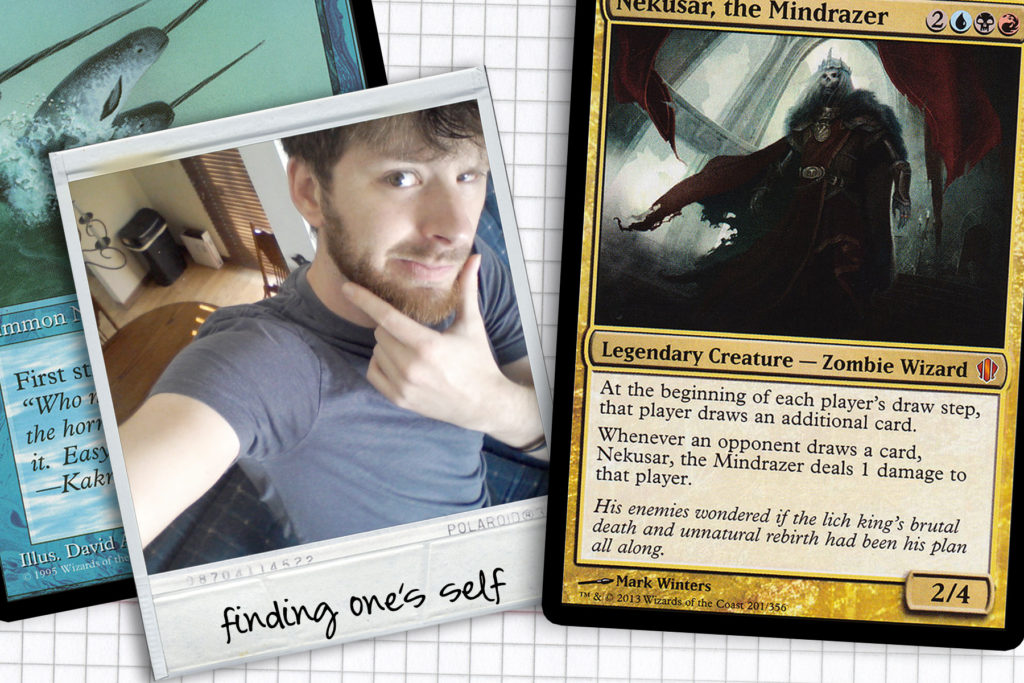
The Social Contract
Commander changed everything, through the format Magic finally stopped being the same game it was when I first started my collection with the preconstructed deck and packs of Odyssey. Where once it felt completely reasonable to have four copies of Demonic Tutor in my “I’d Tap That” deck with my high school and college playgroup, entering the large ocean of Commander players demonstrated what could really be done with expendable income and a desire to win. Tutors were fine within the vacuum of kitchen tables and apartment floors, because we were tutoring for Wrath of God or Assassinate, that’s no longer the case.
While the arms race among my Commander playgroup has lessened in the last year – especially as Dollar General took off – the caliber of cards you were informally required to be packing to stay in the game ramped up considerably between 2014 and the beginning of 2017. Where once an untuned The Mimeoplasm deck might have been able to sit back and swoop in for the victory, within a few years Talrand, Sky Summoner Control or Odric, Master Tactician Beatdown made games a lot less easy going for a stretch. And now, have you heard what you can do with Spike, Tournament Grinder? It’s crazy.
In many ways, dialing back the power to reintroduce the fun has been a big boon in the last year, it has made me return to brewing and really allowed me to stretch my creative wings again. I still enjoy watching games start out with land, Mana Vault, Grim Monolith, but now more in moderation. I love Commander as a format, I think it is the most entertaining ways to play the game and has been a solid investment of my time, but – like my experience with the Kiki-Jiki/Seeker of Skybreak combo—in some ways there are times when playing a deck because it’s fun just won’t cut it. The Warp World is being replaced by Chaos Warp, the Narwhal are becoming Master of Waves, and in small ways, innocence is gone.
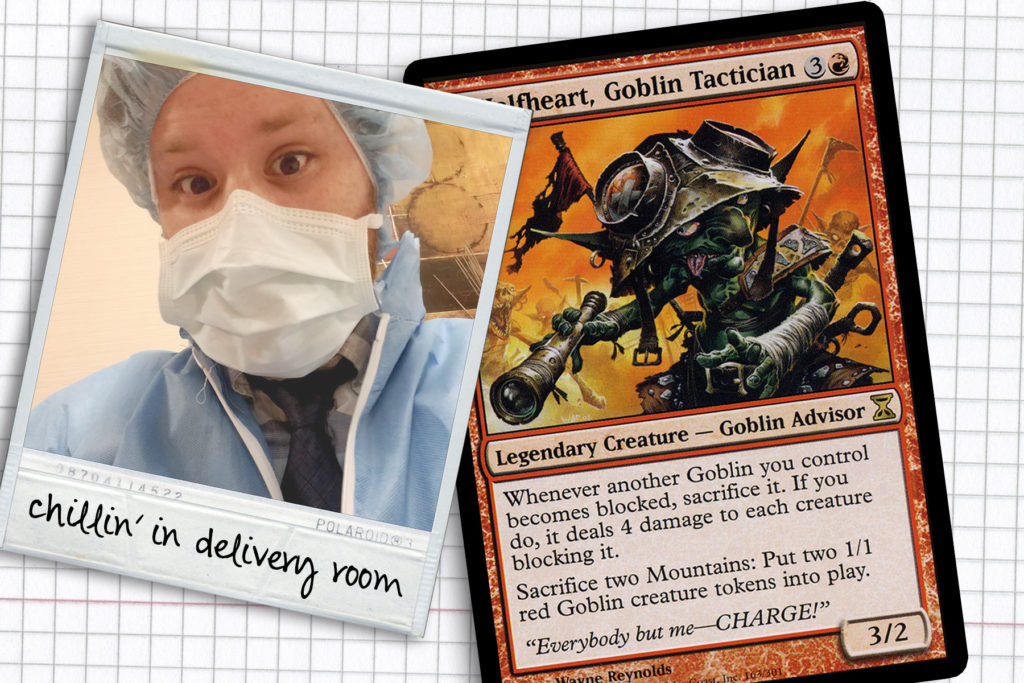
Refocus
Magic is the best game I have ever played, better than Werewolves, Super Smash Brothers, Breath of the Wild, D&D, or even Survivor—if I ever make it to Survivor. I think about Magic constantly—tenfold to the time playing it—and think about parts of my life through the lens of lessons I have learned from it. And in that way, it is all-consuming. But until I teach my son to play and see the innocence in his eyes, I don’t know that I can turn that switch off in my head and just enjoy it as a game. And that might be the biggest failure of Magic, it becomes more than a game, it becomes personal.
In an attempt to not end on a downer note, let me close by saying that writing weekly has refocused the goal posts in terms of what is important to me as member of the Magic community. I’ve never really thought much about the psychographics and where I fit into them, but I think as a writer I might be a Johnny. I write to show or prove something about myself and share it with the world. I think that carries over into my gameplay and deck building, but I might have to shelf that idea for another day. I think the most important thing to take away is that this is a game, something you can keep as a deep dark secret, be highly competitive with, or highly social. So I invite my readers to take a moment to remember when their spark ignited and what brought them into the game. Because I hope that sensation is universal.
Thanks all.


